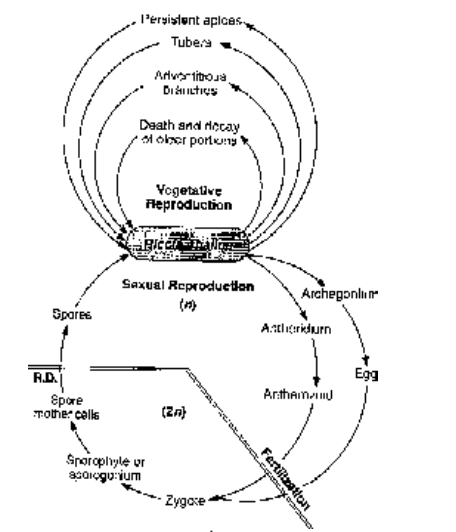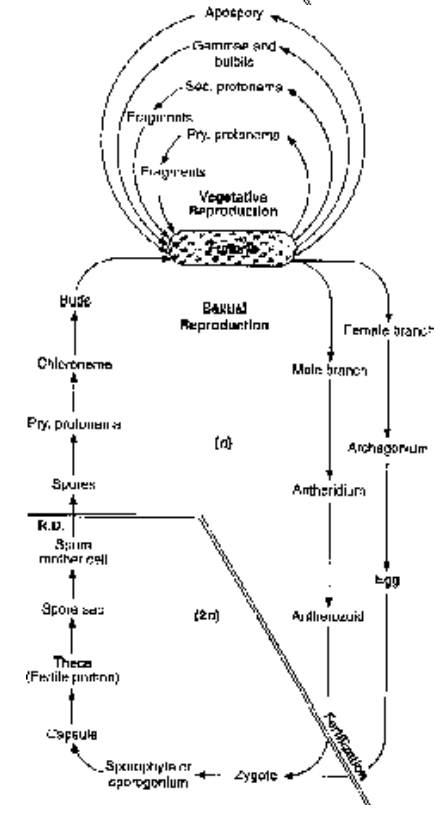
Economic Importance of Bryophyta
Plant Kingdom of Class 11
Economic Importance of Bryophyta
Ecological Importance
Bryophytes are of great ecological importance. They usually grow densely and hence act as soil binders. Such vegetation also checks soil erosion by reducing the impact of rain drops and wind.
Liverworts and mosses, growing on rocks, add organic matter to the substratum after their death. Thus, these plants have an important role in ecological succession.


Fig. Life cycle of Riccia Fig. Life cycle of Funaria
Other Uses
Medicinal Uses : Some of the common medicinal uses of bryophytes are listed below :
Marchantia polymorpha has been used to cure pulmonary tuberculosis.
The decoction prepared by boiling dried Sphagnum in water is used in the treatment of hemorrhage and eye diseases.
Tea prepared from Polytrichum commune is used to dissolve kidney and gall bladder stones.
Antibiotic properties : Certain bryophytes possess antibiotic properties and can be used to extract a number of antibiotic substances.
Water retention : Sphagnum retains 18-26 times more water than its weight. Therefore, moist Sphagnum is used by gardeners and horticulturists to prevent desication of seedlings, cut plants, vegetables fruits, bulbs, tubers, etc. during transport and keeping for propagation. It can also function as absorbent cotton.
Food : Mosses constitute food of many small animals. Some birds (e.g., Grouse Chicken) feed on capsule of Bryum and Polytrichum.
As indicator plants : Some of the bryophytes grow in specialized areas and, therefore, used as indicator plants. Leucobryum glaucum, Polytrichum and Rhacomitrium indicate the acidity of soil. Tortella tortusa and Nickera crispa grow well on soils rich in lime or other bases and occur as calcicoles.
Classification
Bryophytes are divided into three classes : Hepaticae (Liverworts), Anthocerotae (Hornworts), Musci (Mosses). However, ICBN recommended names of these classes as Hepaticopsida, Anthocerotopsida and Bryopsida.
The recent classification of Bryophyta is a as follows :










